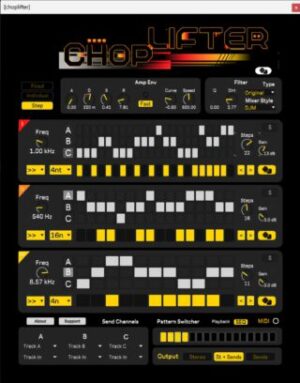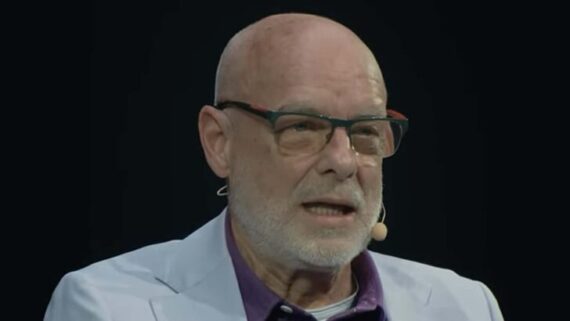
Roger Linn slams Behringer’s unauthorized LinnDrum clone.
Last month, German gear manufacturer Behringer announced the release of LM Drum, an unauthorized sort-of-remake of the LinnDrum, the iconic drum machine designed by Roger Linn of Linn Electronics and released in 1982.
LinnDrum was the successor to the Linn LM-1. Both the LM-1 and LinnDrum became hugely popular with musicians throughout the ’80s, featuring in songs from Michael Jackson, Prince, Gary Numan and many more.
Instrument design pioneer Roger Linn (LinnDrum, MCP, LinnStrument) shared his thoughts over the weekend on the Behringer LmDrum – a new drum machine that copies the look, logo and, according to Linn, the copyrighted samples of the classic LinnDrum. Linn has revealed that Behringer didn’t seek his permission before developing its clone of his classic drum machine.
While the LmDrum may look like a straight knockoff of the LinnDrum, it’s essentially a sampling sequencer, where the LinnDrum is a sample-based drum machine.
Linn calls the Behringer LmDrum ‘confusing and difficult to use’, and questions the ethics of Behringer copying the LinnDrum’s samples without permission:

“Uli Behringer kindly sent me an LmDrum in August of 2024, giving me a chance to try it out.
What do I think? I think it’s a bit of a head-scratcher. It is clearly intended to evoke my 1982 “LinnDrum” drum machine, borrowing its visual style, control layout, colors and logo style, as well as copying its sounds and those of my LM-1 and Linn9000 drum machines. I took it apart and it even copies much of my LinnDrum sound generation circuit, even my bad ideas like the inability to tune any drums except the snare, toms and congas.
However, it uses an entirely different operating system and user interface, one that is based on earlier Behinger drum machines. Personally, I found it somewhat confusing and difficult to use, though I was given an unfinished manual. I’d imagine they will improve both the software and manual over time. I suspect the designers found it difficult to find a balance between 1) the impression of a LinnDrum clone, and 2) the addition of modern features, given that the 1982 LinnDrum’s feature set is woefully inadequate by today’s standards.
It’s worth noting that Uli never asked my permission to either copy my visual design or my drum sounds. Though in 2020, he did kindly invite me to collaborate on a future drum machine, and I respectfully declined because of concern about Behringer’s past business ethics and legal practices.
How do I feel about the LmDrum? My feelings are mixed. On the one hand, it’s not unusual for companies to borrow ideas from older products in order to inspire a new and innovative design, which I’ve done in past. Plus, my old drum sounds are all over the web, controlling copying is difficult, and I don’t enjoy legal stuff so I’ve generally ignored the issue so far. Also, the value in those old sounds is probably due more to Art Wood (the drummer who played the sounds, and my friend of many years), and to artists like Prince, Michael Jackson, and others, who made those sounds famous on their hits. Finally, I must admit that I’ve never cared much about the past, because I find the future far more exciting.
On the other hand, even if we discount the copying of the visual design, logo style and sound circuit of LinnDrum, the LmDrum copies my sounds. So I’d have preferred for Uli to ask my permission.
Even if he thinks it is legal, I question whether it is ethical.”
While Linn evidently disapproves of Behringer’s LM Drum, he admits that it’s “not unusual” for companies to borrow ideas from legacy products, noting that it’s something he has done in the past. Linn also concedes that the original LinnDrum samples are “all over the web”, an issue that he’s largely ignored due to a distaste for legal disputes.
In his statement, Linn also references the release of IconDrum, a recently released drum machine plugin from GForce Software that’s also based on LinnDrum. “Like the LmDrum, it copies the LinnDrum’s visual design, logo style, and drum sounds, but has no sequencing,” Linn says.
“Like Behringer, GForce did not ask my permission to use my sounds, but did offer to pay me an insignificant royalty to use the ‘LinnDrum’ name, which I declined because I thought it was misleading to call a product ‘LinnDrum’ that wasn’t a drum machine but rather only played my copied drum sounds. They went ahead and released it.”
Read the full comments on Linn’s website.
Roger Linn has been one of the most influential electronic instrument designers for over 40 years. He kickstarted modern drum machines with the LinnDrum, he created the genre-defining Music Production Center (MPC) and his most recent instrument, the LinnStrument, has been seminal in the creation of the MIDI Polyphonic Expression (MPE) standard.
Linn has also been a balanced critic of new gear that builds on his designs. Notably, he called out AKAI and its owners, years ago, when they put out derivative MPCs and refused to pay him his royalties, but more recently had very positive things to say about the latest generation of MPCs.
His comments on the LmDrum seem pretty fair. He highlights the instrument’s affordability and notes that it expands a lot on the original LinnDrum feature set, which he calls “woefully inadequate by today’s standards.” But he also notes that Behringer appears to have copied the copyrighted samples of the LinnDrum, without permission.
Behringer has previously stated that their core business model is essentially to copy other company’s designs, to the extent that is legally possible. They describe their strategy as being a ‘Market Follower”:
Market Follower: A market follower seeks to gain market share but is less interested in differentiating its brand from the market leader. Instead, the market follower effectively rides on the market leader’s coattails while positioning its brand just far enough away from the market leader to be different. A great example is any young adult novel that’s marketed as “the next Harry Potter.”
In this case, Behringer appears to be pushing the legal envelope by using the LinnDrum’s copyrighted samples. But Linn’s comments make clear that, while he sees Behringer’s actions as unethical, he’s not that interested legal battles or nostalgia for old designs – he’d rather be designing the future.
What do you think of Linn’s take on the Behringer LmDrum? Share your thoughts in the comments!






